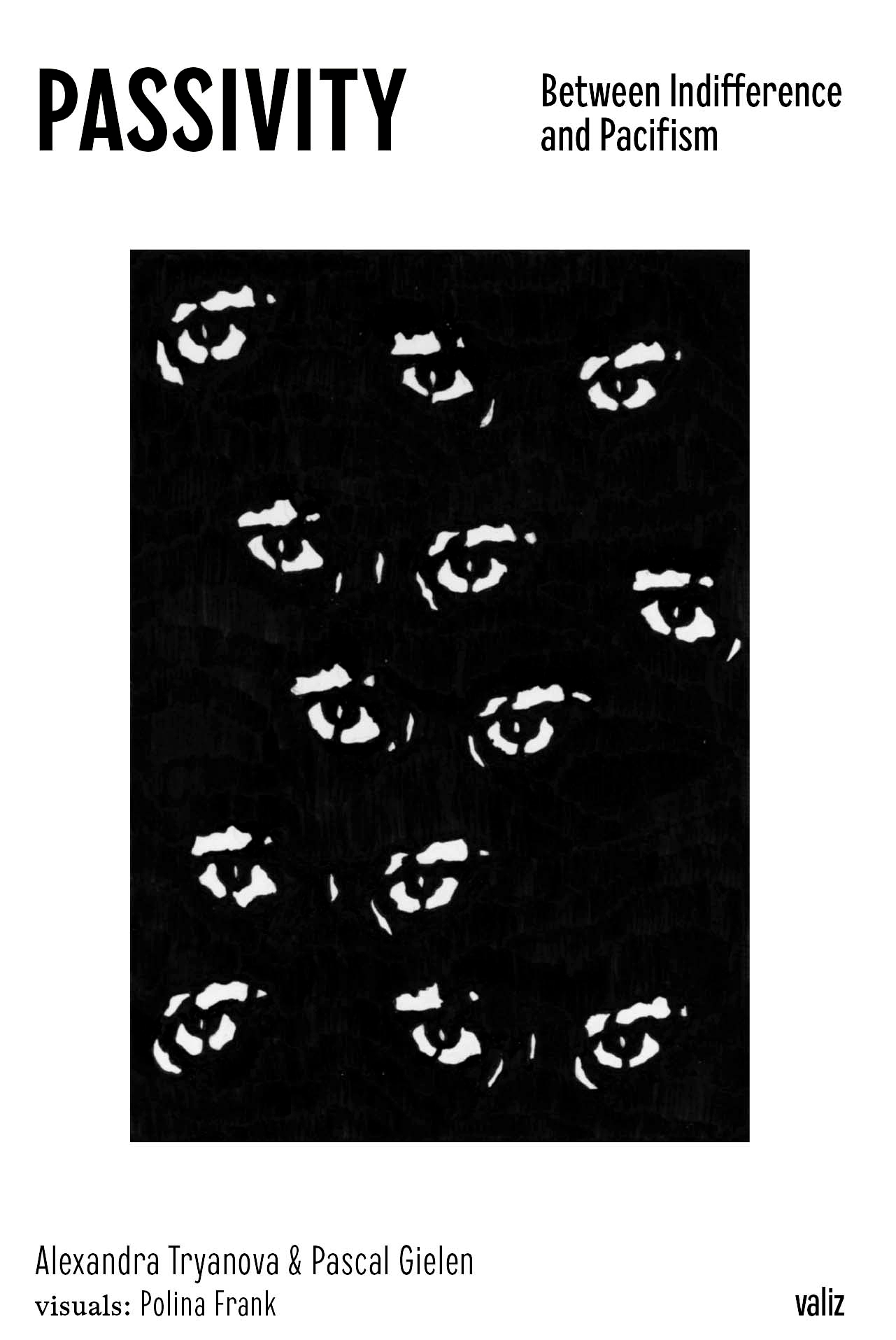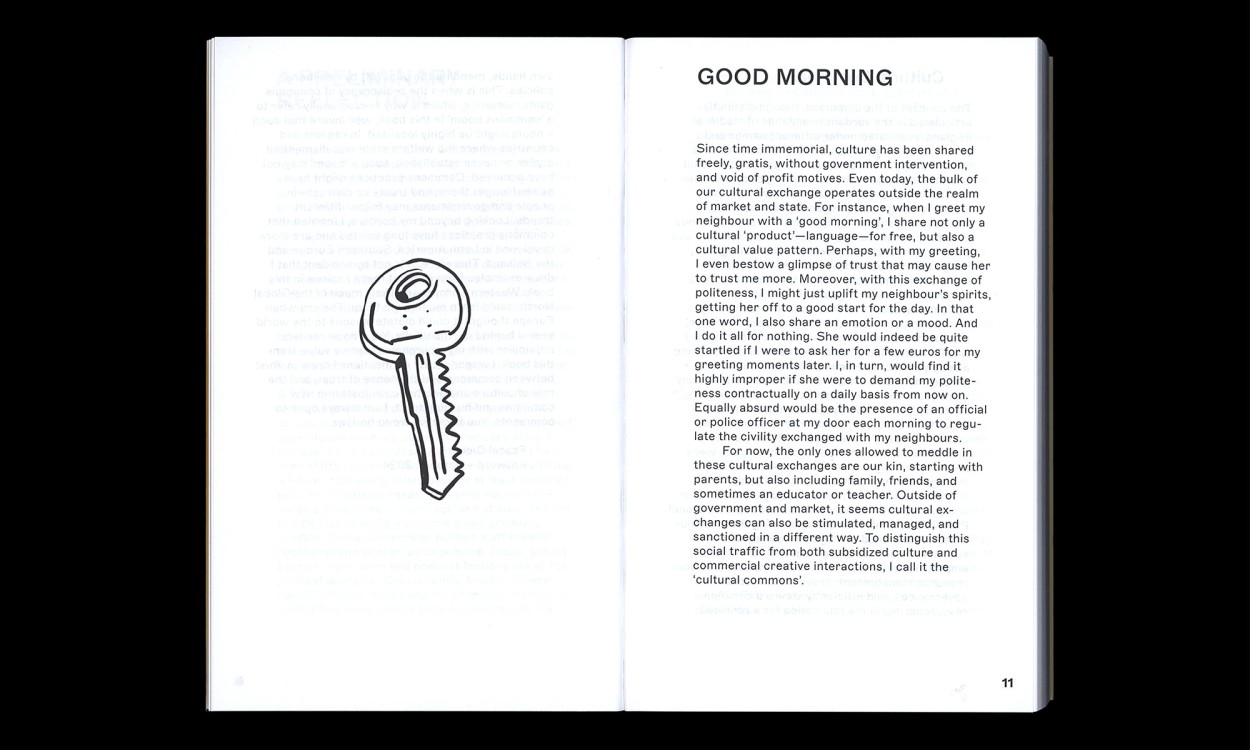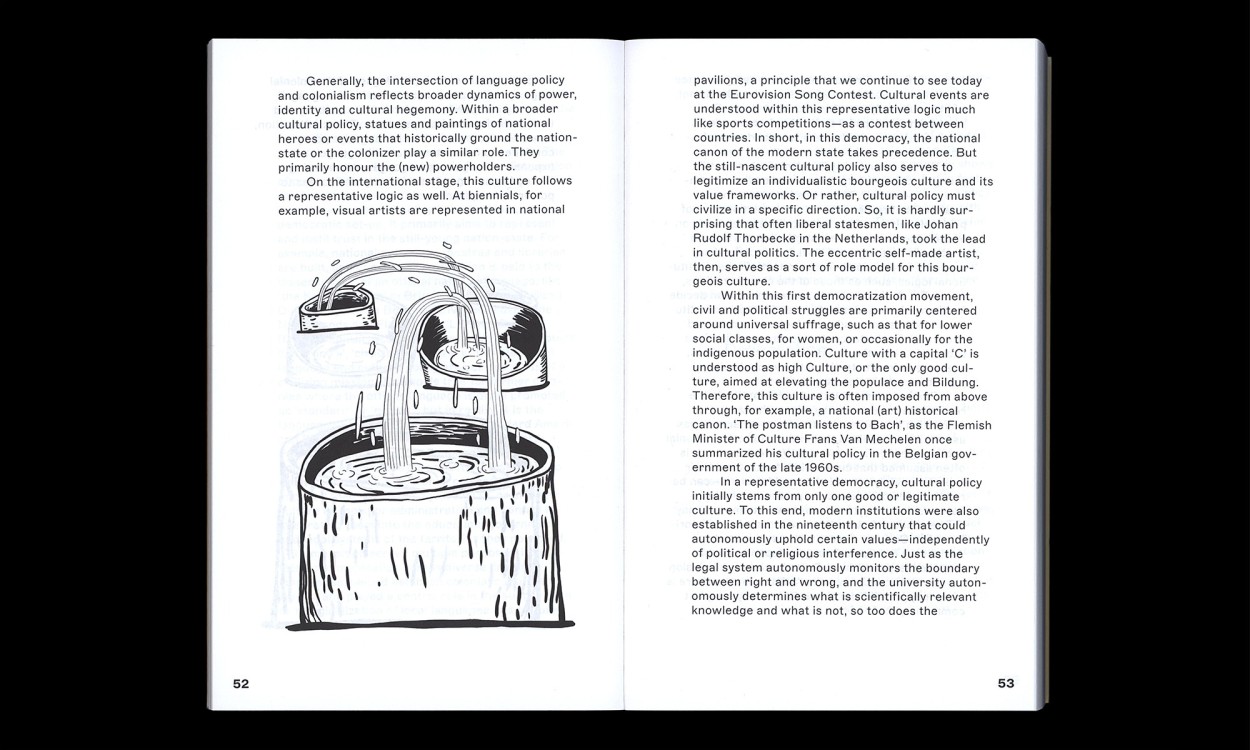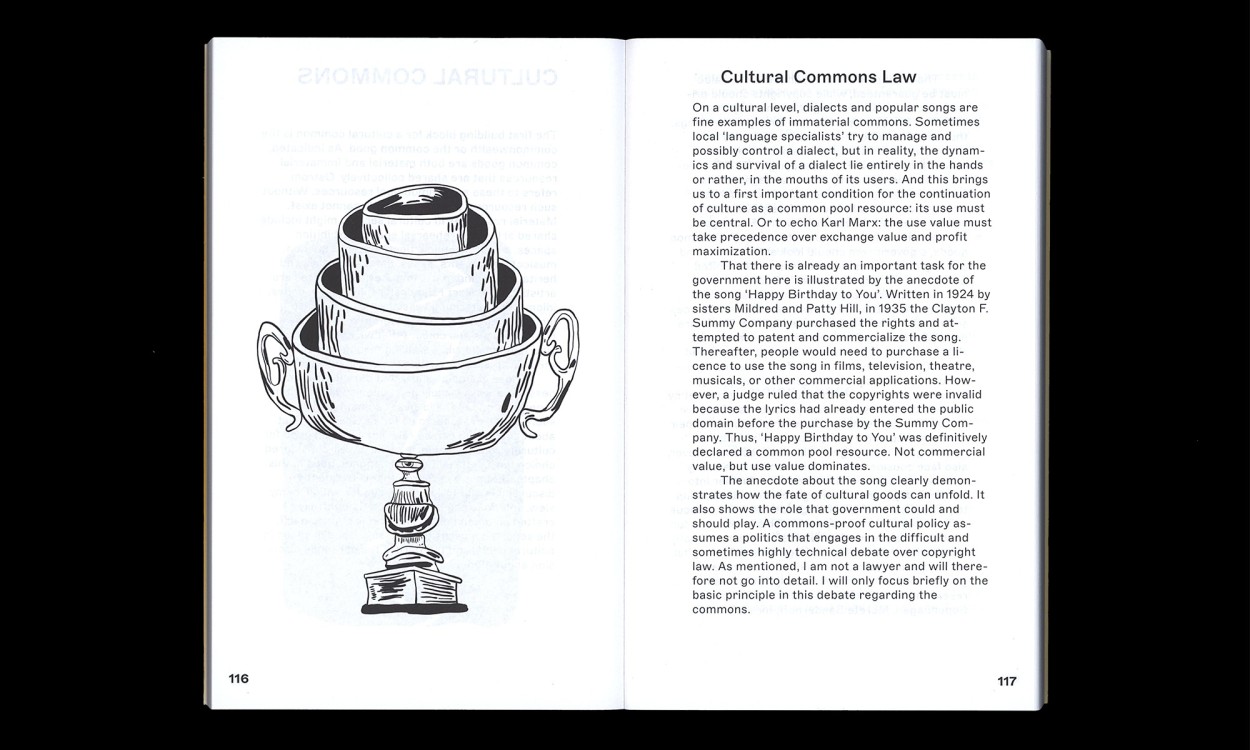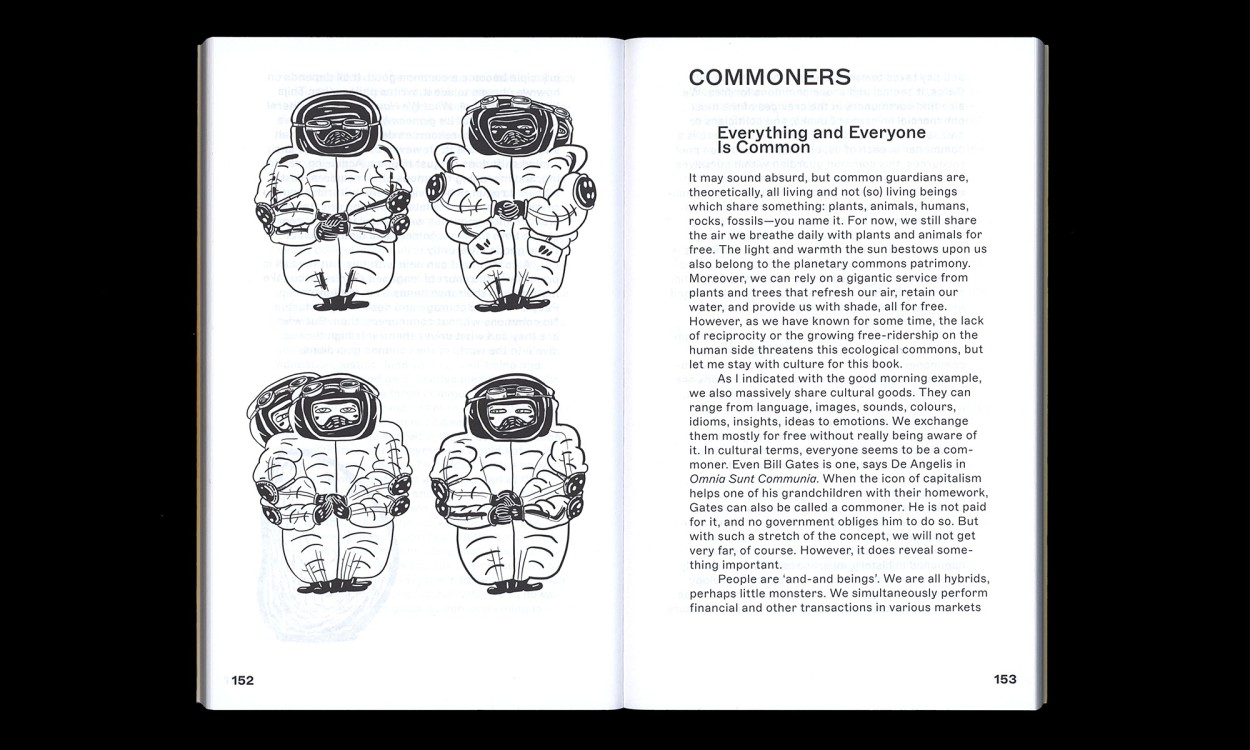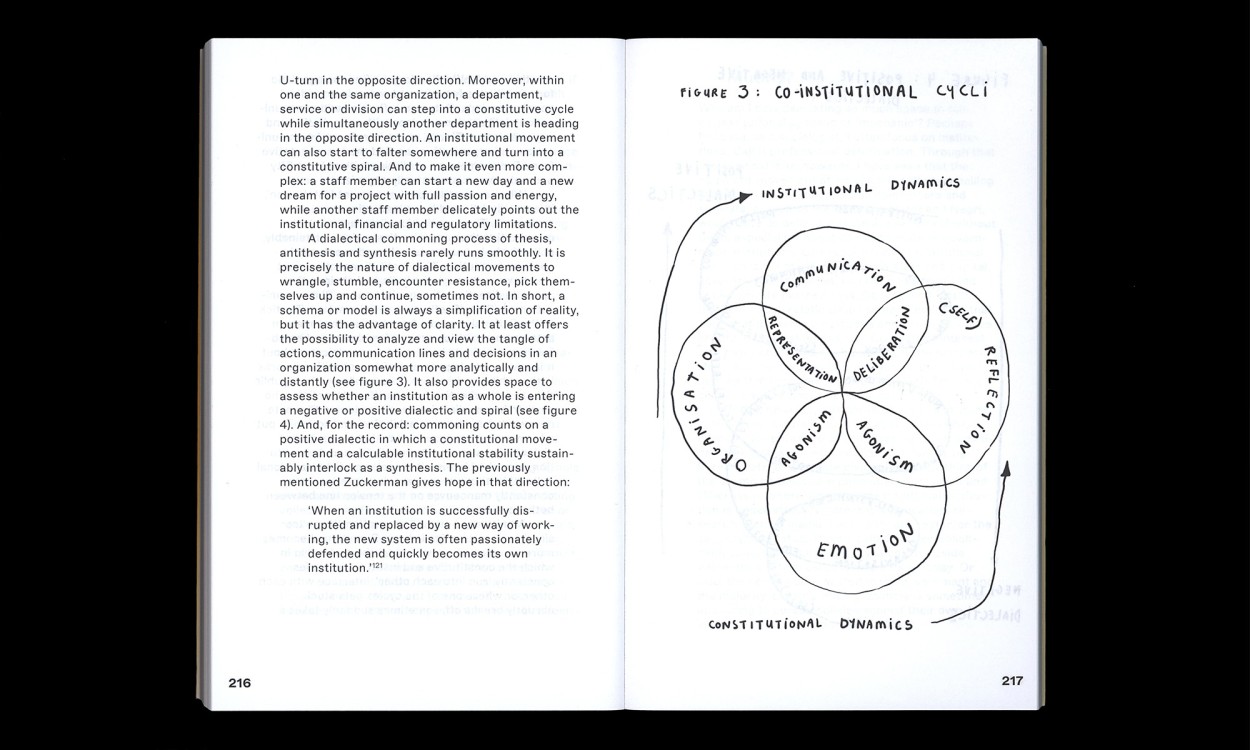Trust
Building on the Cultural Commons

- Reflects on the increasing distrust in fellow human beings, governments and corporations.
- Highlights the importance of culture and the cultural commons for building trust.
- Advocates for a politics of trust that lets people develop and manage their own culture
Author: Pascal Gielen
Drawings: Karina Beumer
Design: Lotte Lara Schröder
November 2024, Valiz | pb | 288 pp. | 19 x 11,8 cm (h x w) | English | ISBN 978-94-93246-40-9 | €19,90
Pascal Gielen is a writer and full professor of sociology of culture and politics at the Antwerp Research Institute for the Arts (ARIA) where he leads the Culture Commons Quest Office.
Karina Beumer is a visual artist. Her work starts from drawing, and often leads to other forms of art, such as music, video, sculptures, writing.
How can we break through a culture of mistrust? Suspicion regarding our fellow beings, the authorities and enterprises is growing, blamed on passing the buck and feelings of impotence. We seek remedies in regulations, contracts and procedures, assurances, audits and consultancy. As well as in good governance and transparency. But do they actually make for real trust? Is trust not always somewhat blind?
Trust: Building on the Cultural Commons highlights the crucial role played by cultural commons, shared ‘common’ life and its customs, practices, knowledge and values. After all, trust is a matter of culture, emotion and even aesthetics. Wide-ranging trust starts with the sharing of vulnerabilities, and it is Pascal Gielen’s belief that the ‘common’ provides the necessary scope. Breathing space and scope for experiment. How might a society and a policy build on this?
This book is an English and international version of Vertrouwen: Bouwen op het cultureel 'gemeen', written by Pascal Gielen and published by Valiz in November 2023. For this new English language publication, Gielen has broadened the scope of the former book, and has included several international case studies of cultural commons.
Related articles
Vertrouwen
DUTCH ONLY

Fragility

Passivity
